
Editor’s Note: “Over a Beer” is a regular column written by Greg Heil. While Greg is the Editor in Chief for Singletracks.com, any opinions expressed in this column are his alone and do not necessarily represent the opinions of Singletracks.com.
The stock criticism trotted out by extreme anti-mountain bike conservationists like the Sierra Club is that mountain biking is harmful and degrading to the environment. However, most mountain bikers realize that the Sierra Club is full of BS, and that mountain bikes have no more impact than hiking boots. Some US Forest Service districts have publicly acknowledged this fact as well.
However, in our discussion of impact, there are usually some caveats. Mountain biking has the same impact as hiking if mountain bikers don’t skid. It has little impact if you ride when the trails are dry. There’s almost no impact, unless you’re doing Rampage-style mountain biking, building big booters in the mountains, or freeriding… if you’re acting like a hooligan, the argument goes, you actually are having a serious negative impact on the natural environment.
[see_also id=”62379″][/see_also]
The other day while I was scrolling through my Facebook feed, looking for cool mountain biking videos and unfollowing obnoxious political ranters, I happened upon this video that was re-shared by a “friend” of mine from a car page:
To be clear, I have no problem with someone having a fun time. And I’m sure for an official event like this one appears to be, they had a closed course and permission to be there. But after watching the video above, uttering the phrase “mountain bikes hurt the environment” makes you seem completely and utterly clueless about the state of the world, and obsessed to the point of delusion with the mountain biking “problem.”
Seriously, did you see how much dirt was displaced by the passage of this one vehicle, the tracks that were left, the rampant erosion? Even comparing the rowdiest of Red Bull lines, freeride schralping in the desert–none of that can even compare to the damage that some motor sports inflict on the environment.
I mean, watch that video again. It’s just crazy.
Environmental Disasters

As damaging as driving a dune buggy straight up a mountain may be, motorized recreation is a drop in the bucket compared to the scale of environmental disasters from resource extraction.
Take, for just one example of these environmental disasters, oil spills. Have you heard of the Exxon-Valdez oil spill? Yeah, it didn’t even make the list of the top 10 biggest oil spills in history.
Let that sink in for a second. We’ve had so many oil spills over the years that there’s enough to create a top 10 list, and one of the most famous spills in history isn’t even on it.
In just the 10 biggest oil spills on record (not including the numerous smaller spills), roughly 1.5 billion gallons of crude oil have been spilled into the environment.
That’s a difficult number to visualize, so check out this list of things you could do with 1 million barrels of oil… at 42 gallons to a barrel, multiply those numbers by 36 times.

No More Caveats
From here on out, I’m cutting the caveats out of my language when talking about mountain biking’s impact on the environment. I’m removing the qualifiers. I’m not even throwing the 1% of impactful mountain bikers under the bus. Because if you compare mountain biking to numerous other forms of recreation like off road motorsports, not to mention the massive impact from environmental disasters like oil spills, the impact from mountain bikes is about as close to zero as you can get.
Our struggle for mountain bike trail access has nothing to do with environmental impact. It has everything to do with money and power, greed and selfishness.


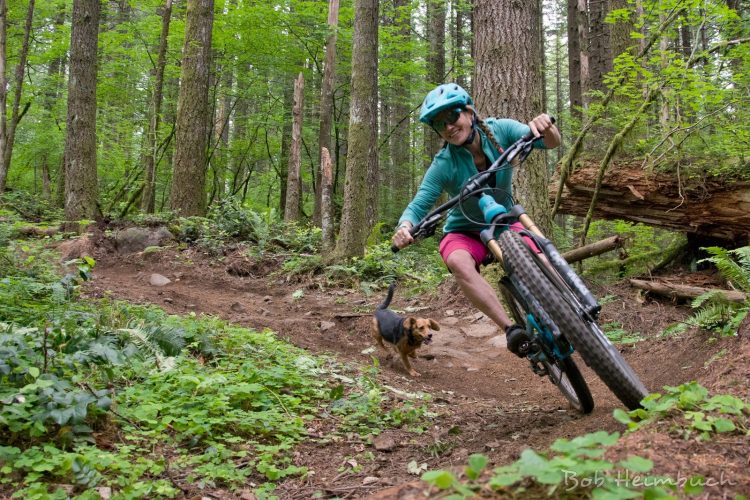
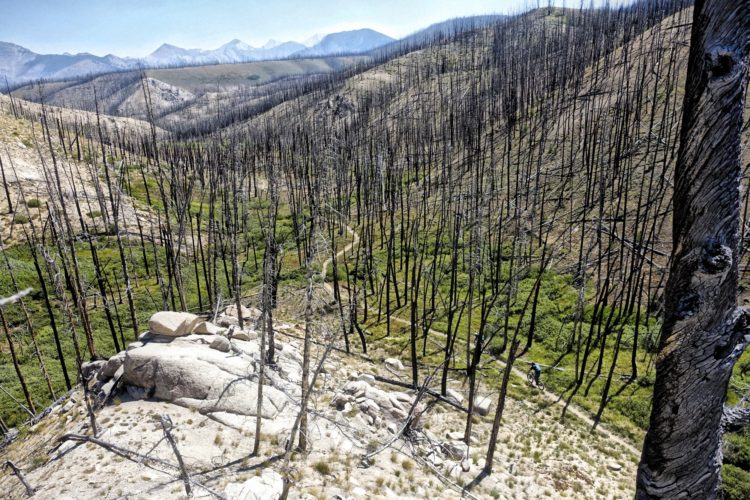



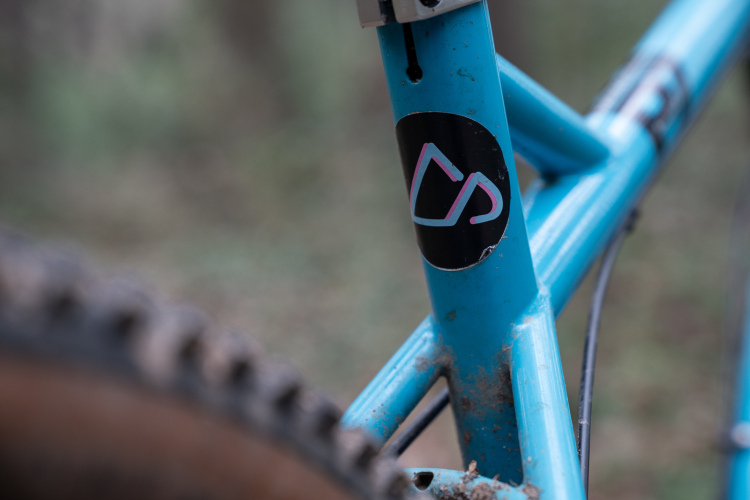
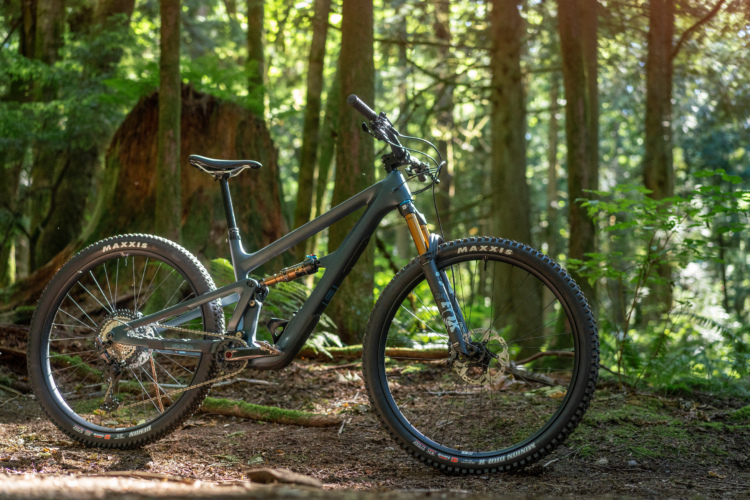
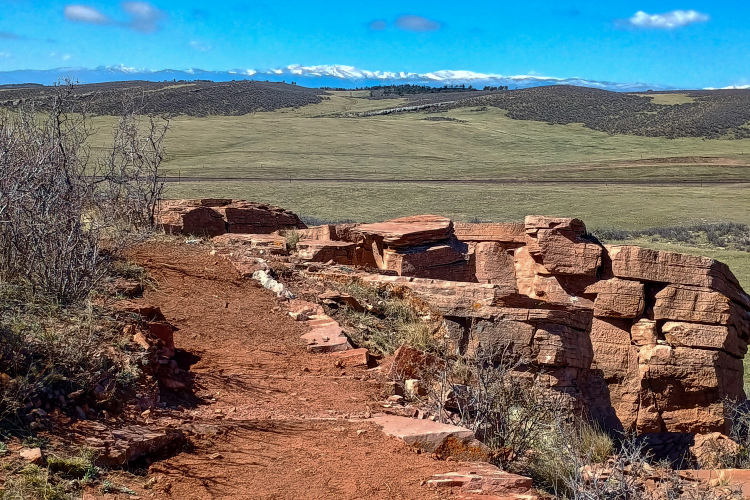

33 Comments
Feb 15, 2017
I generally enjoy your columns and agree with you, our at least I can follow the reasoning in your columns, but you've really dropped the ball here. You started off exploring an interesting line of thought, that mountain biking only has a small impact if a number of caveats are fulfilled. Indeed, youtube is full of people "slaying" the trails with skids, drifts, etc., which indeed is troubling if you always argue that mountain biking is not harmful.
I am with you up until this point. However, you go on to say that, in terms of damage to the trail/environment, mountain biking is not bad because there exist other activities which are worse. This is a logical fallacy, known as the fallacy of relative privation. If i punch someone in the face, is this justified because other people murder? Both are acts of violence against humanity. You then expand your fallacy to include oil spills, why? Yes, the are worse than a skid, but...
As mountain bikers, we can be aware of the damage that we do, and still ride. If we are interested in minimizing our damage, we can take certain precautions. We can also have understanding for conservation groups, and not attack them as extremists. In the end, we have very similar goals.
You are also free to not care about the environment and rip up the trail. I'd prefer if you didn't, but in the end it's up to you. Just don't say it's OK because of the penguins. Say it's because you don't care.
-Jake
p.s. As a personal opinion, i am afraid of focusing on the conservation groups as the enemies, when the other side literally wants to take away these spaces from the public:
https://www.theguardian.com/environment/2017/jan/31/public-lands-sell-congress-bureau-management-chaffetz
Feb 16, 2017
Feb 15, 2017
Whether or not Greg is aware of it, he's doing a great job of pointing out a distinction between environmental damage and trail damage. Skidding a corner ruins the corner, not the hill. Going around a puddle instead of through it ruins the trail, not the terrain. Take roads for example: roads are essentially a super-improved trail. Is damaging the asphalt environmental damage? If it's not, then no problem. But if you say that it is, then you're classifying human-altered areas as no different than the environment, and then there literally is no such thing as environmental damage because now human-altered areas ARE the environment.
In that context, I think it's easier to support an argument that 'environmental damage' is really just 'human alterations to the environment' than it is to claim that 'trail damage' is 'environmental damage'.
What gets interesting in the context is that you kind of end up painting the construction--rather than usage habits--of trails (or widening, workarounds, etc.) as environmentally damaging. If you follow that thought to its terminus it basically says that we shouldn't build any more trails. In THAT case, relative privation would apply because building a "little trail" is okay because an oil spill is worse is, in fact, fallacious.
That actually kinda freaks me out because it's a solid argument, but I ALSO want to ride new trails all the time. Three cheers for cognitive dissonance, I guess.
Feb 15, 2017
Feb 16, 2017
Feb 16, 2017
Feb 16, 2017
I was making a point to demonstrate this logical fallacy. I was deploying "humanity" to evoke "humankind", "all people", "society". It also implies our common values, and our togetherness on this planet. It's what makes you stop and ask a stranger on the side of a trail everything is "alright".
One person is (a very small) part of humanity, right? We live by norms, which I suppose include "don't commit unnecessary violence against other humans". Breaking this norm is damaging to all of us, if only in a very small way. It doesn't hurt you, if some someone commits an act of violence against someone you know or love?
-Jake
Feb 16, 2017
Thanks for the insight. However, your premise is that trails is "ruined environment". I really differ on that assumption. You also go on to use widening the trail as an example, which is basically at odds with your premise.
The road = improved trail is also not necessarily true. It is correct that roads are not natural or "the environment", it is environment which has been destroyed to make way for cars and trucks. I think trails are less unnatural- they do no involve transporting machinery and foreign materials into natural spaces, and they are more mindful of natural formations, geology, wildlife, etc. Natural trails also exist, created by animals, and i think the most natural singletrack tends to imitate this type of trail. However, they do allow us to move through natural spaces in a way which would have otherwise not been possible (I can't type that cycling is an unnatural way of movement, as for me it is the "most-natural" way of moving).
I do think that creating trail can alter or damage the environment, albeit in a limited way (hopefully). Really rutting out trails and causing erosion, riding wet trails and expanding the trail by riding around puddles alters the environment even more (there was no "trail here before, so by your own definition ruining "un-ruined environment"). This is what the sierra club and other environmentalists are concerned about (and maybe also some fantasies, i don't really know what everyone believes). My point is that I would rather us say- "yes, we do have some impact. Let's take a look at it: it's small. Let's try to keep it to a minimum, and move (ride) on with or lives)."
My conclusion: Mountain biking does somehow alter the environment. We can find common ground with conservation groups on this fact. What we can argue, is that as AWARE users of natural spaces, we can limit our impact (it is hard to mitigate a risk without first identifying it). Hopefully, working together and having a better understanding of the others concerns, we could gain new access, build trails in a way which alter the environment in a limited way, and ride :)
Jake
P.S. It was maybe off-topic to criticize Greg's logical fallacy, even though I stand by it (little can be less than a lot, but still more than zero).
Feb 15, 2017
"Whether or not Greg is aware of it, he's doing a great job of pointing out a distinction between environmental damage and trail damage."
This is my point exactly, which is how I can hold the belief stated in this column, and this belief that I posted last week: https://www.singletracks.com/blog/mtb-columns/over-a-beer-rutting-up-trails-is-an-act-of-pure-selfishness/
Perhaps I should have tried to verbalize this distinction more, but based on other comments in this thread (and on Facebook) it appears that the nuance is lost on 99% of people. Thanks for being part of the 1%!
Nov 26, 2018
Yes, mountain bikers are bad for the environment, period. I have been a trail builder for years, mountain bikers and their advocacy groups crap all over the environment. They build illegal trails everywhere, even those sub-imba groups with mission statement that state they will focus on conservation are garbage. I have seen them build rouge trails and lie about what the land managers has approved and had volunteers continue building because they know the consequences are minor. Most public land managers don't want to upset a huge volunteer base, so they don't say anything. They don't care about the environment, just how many and how "epic" the trail was. It's not mountain biking that's the issue, it's the entitled mountain bikers. Their great grand kids will know it as the great national rut.
Feb 15, 2017
I think the point was, mountain biking is insignificant damage compared to some of the other types of damage listed. That is not a logical fallacy but a fact if you believe it is damage at all.
Do mountain bikers or hikers cause any more damage by causing trails and erosion that large herds of animals such as buffalo when humans were less plentiful and buffalo had a much larger population?
That would assume all animals damage the environment and are not part of it. Are bacteria and insects which their job in the environment to clean up after larger plants/animals from their course of life, excrement, death, uneaten food damaging to the environment or are they a part of it? But insects like locust when population gets to large can wipe out large amounts of plants, is that damage or the course of nature?
If you believe bacteria and insects are part of the environment then humans to are part of it as well and their activities are part of the environment. Oil spills under ground and in the ocean happen and they cause local damage, just as when humans do it. There are enzymes and organisms that clean up after those problems. If not the oceans would be dead by now.
While Greg is a hypocrite when trying to control people through guilt not to create ruts in trails, he makes a valid point, bicycles have an insignificant affect on the environment that the others he listed. The largest populations of animals and the largest sized animals will always have the greatest effect on the environment like buffalo, dinosaurs or swarming insects. Whether that effect is called damage or natures due course is debatable. We live in a closed environment, there is no "trash" here. Everything is from here except objects from space caught in our gravitational pull, rocks brought back from the moon. One could argue synthetic man made molecules could be considered trash and I would grant that.
If every human was removed by nature by some virus or natural disaster nature would grow over everything man has made, just like it did with the dinosaurs. Is that damage? I would argue that mans effect on earth is just part of nature, part of life, part of the order of things with the animals at the top of the food chain making the decisions, as it has always been.
Feb 16, 2017
Thank for your point. I like the first part of what you said, and kind of got lost when you started talking about bacteria and stuff.
Maybe the whole point is that most of us see insignificant damage as equal to no damage, considering the other damage that occurs, natural or otherwise. OK, i do get this point. I am trying to be more precise, to find common ground..
I am trying to put on the hat of the conservationist. I am trying to illuminate the distinction between what we may think of as insignificant damage, and no damage. Only then, can we get together and say: "fuck horses".
-Jake
Feb 15, 2017
Feb 16, 2017
My point in bringing up the old topic is this. You are complaining Sierra Club is shutting down trails and using the excuse that bicycles cause damage yet it is negligible. Yet you in the same breath trying to guilt people into not ridding trails when wet as to create ruts, yet this damage is also negligible and part of the sport.
You and the Sierra club are both trying to exert you will over others using argument of damage. The only difference is they have power that of lobbyists and you have only guilt and trying to create a stigma.
Animals like deer make trails in the forest, they don't do trail maintenance to mitigate erosion. It is natural. Making ruts in mountain bike trails is just part of the sport. And while I am all for being good stewards of our planet, putting a few mtb trails in the mountains or a few ruts is hardly being irresponsible stewards of the planet. IMHO of course.
Feb 16, 2017
Feb 16, 2017
Feb 15, 2017
Totally agree with you, Greg. If mountain bikers do damage trails, they doing it way less then other recreational groups for sure. It is about money and selfishness.
Feb 16, 2017
Feb 16, 2017
Author: jgmtb
Comment:
Hey Kawazoomer,
Thank for your point. I like the first part of what you said, and kind of got lost when you started talking about bacteria and stuff.
Maybe the whole point is that most of us see insignificant damage as equal to no damage, considering the other damage that occurs, natural or otherwise. OK, i do get this point. I am trying to be more precise, to find common ground..
I am trying to put on the hat of the conservationist. I am trying to illuminate the distinction between what we may think of as insignificant damage, and no damage. Only then, can we get together and say: "*uck horses".
------
My point. Is damage bad or just a part of nature?
Does it really matter if the "damage" is small or none?
We use use to think forest fires were "damaging" to the forest, so we started putting them out. We found out it is a natural process, it clears the woods of old dead trees, makes suitable areas for new growth, kills off overpopulation of pest like pine beetles and creates fertilizer. There are some trees that will not release seed unless there is a fire. Forest fires cause major damage including erosion but is it bad? No. It is part of a natural process.
When a mountain lion kills a mountain goat, the goat is damaged. Is it bad? Maybe for the goat but it is part of a natural process.
Deer make trails in the forest, it can cause erosion. Is it bad? no it is part of a natural process. Mountain bikes make the same type of trails in the forest. So back to the point, if you consider bacteria or swarming insects part of the natural process, humans are also considered part of the process and them making mountain bike trails is not necessarily bad even though just like the deer making paths it is still considered "damage". So the distinction between no damage and insignificant damage is irreverent when it is part of a natural process.
According to scientists the earth is millions of years old, and has gone through a number of stages, including extinction of dinosaurs and may other species due to the 3rd law of thermodynamics.
The conservationist is like an emotional irrationality old woman of 98 years trying to prevent further "damage" to her beauty by not going out in the sun or doing exercise, or doing anything that could cause further damage instead of trying to use whatever resources left to support a good life. Everything is seen as damage instead of the natural process of life and getting old.
Feb 16, 2017
Of course, the sexy stuff to see on YouTube are the Rampages of the world where lots of digging and skidding and clouds of crap are sprayed into the air. This is what the general public sees and thinks about when they think mountain biking. And that, of course, appears to (and can be) destructive.
Feb 15, 2017
Greg, I actually love your anti-Pythagorean logic here some mislabel as "fallacy". You could have and maybe should have added more to the end of the argument to tie it all together, but I think we all got the point: mountain biking does not harm the environment. Period. As much as it irritates me to see people ride in the wet in some places and rut up trails, I would argue that all mountain bikers, if able, could roost and boost and ride like a hellion and it would not harm "the environment" relative to the big scheme of things. Sure, it creates more trail work, but there is no harm there. It may create divisions in wildlife patterns, but so does hiking...and more importantly, development. You could build jumps in the woods and kick it all day long, and unless you are slamming into deer or landing on eggs you are not hurting anything.
I don't advocate we do that, but the point is that even our maximum collective destructive effort does not seem to impact that natural world very much--especially when you compare it to all of the other activates that do-- which I think is the point of your article.
Nevertheless, I DO feel we should be good stewards of the world we live in, work as ambassadors for our sport, and ride responsibly. But I do not think we should apologize or retreat when other trail users attack us with data that highlights the negative impact mountain biking has.
Thanks for the thought provoking article.
Feb 16, 2017
Exactly, there's a very real tension here. Living within that tension and balancing the different variables is the difficult part.
Feb 16, 2017
Feb 16, 2017
May 20, 2018
there are certainly at places problems with mountainbikes and trail wear, and i would say this its mostly in places with muddy ground. trails should preferably be rerouted from such areas.
but the general picture and a far greater problem in woods or where greenery is present, are all trails dissappearing because they grow over. keeping them open i a chore for all of us, mountainbikers, horseriders, hikers. we are in this together, let us support each other here.
Feb 15, 2017
Bikerboy, I guess your statement would be considered reasonable. Making a request like this in a polite manner instead of saying you are selfish if you don't do as I say.
As my observation. I have not been riding mtb's for that long. I come from motocross background. The trails like 717 in Woodland Park Co or Rampart up by Castle Rock Co are completely whooped out, they have ruts, berms, breaking bumps. This is part of the sport, no one tries to flatten them out to make it easier. You don't ride the trails or motocross because they are easy, but because they are hard. There are easier trails for beginners but those too have natural obstacles as well as man made ones.
In another post where I commented on Gregs post, we had this conversation others said that ruts were part of the mtb sport as well and if you don't like it go ride street. This is the attitude of all of the people I have ridden with, many with large groups, with bicycle store rides, friends. So when I read his article telling people they were selfish I was really dumbfounded that anyone would say you cannot ride with moisture on the trail. I have lived in Colorado my whole life, there are summers with days when it rains ever afternoon, enough to create puddles. You basically could not ride in summer if you followed Gregs rule. Now perhaps Greg was talking someone specific and that all the riders that go there have this undocumented rule. If that is true I would never ride there. There are too many other places to ride.
As for riding in ruts. I have a fat bike, when it is wet, my tires smash the ruts made by thin tire mtb's and when the ruts are dry a fat bike does not really feel them. So again I don't see a problem, but if me being without years of mountain bike experience, I can navigate trails with ruts and Greg can't, maybe he should consider riding street. Then he won't have to worry about ruts, let the people who ride the ruts and have to navigate more difficult obstacles like roots and step ups and drop offs ride the trails where ruts are inevitable. I have been polite to Greg and so have the people on this board. I think if he told that to some of the old guys I ride with in person they would tell him to take a flying leap, just not in nice terms like that.
Apr 3, 2017
It's just bad for the odd crazy person who doesn't like to see any evidence of bikes having been on "their" trails, who doesn't like the sound of my Pro4.
I am aware that in SOME places you can actually damage the "environment" in a meaningful way, but in MOST places, this has nothing to do with the "environment" and everything to do with the ego of some crazy people who happen to fraudulently claim to be environmentalists, while the only environment they are really concerned with protecting is the swamp of bizarre opinions and personal preferences that live in their head.
Fortunately these are relatively few and far between where I am in Germany.
Feb 15, 2017
Feb 15, 2017
Now let's go a step further. Nearly all the time, any damage to a trail by a mountain bike (or hiker or horse) causes little to no damage to the actual larger environment and ecosystem. The damage is limited to the trail itself, no more. Sure the damage may be an eye sore, but let's keep things in perspective. The trail itself is just a tiny thread in the immensely larger ecosystem. Should we be concerned about the damage? Of course. But not for the sake of the ecosystem, but for the users and for the financial costs and personal sweat equity it takes to repair the damage.
Feb 16, 2017
Feb 15, 2017
Feb 16, 2017
Feb 15, 2017